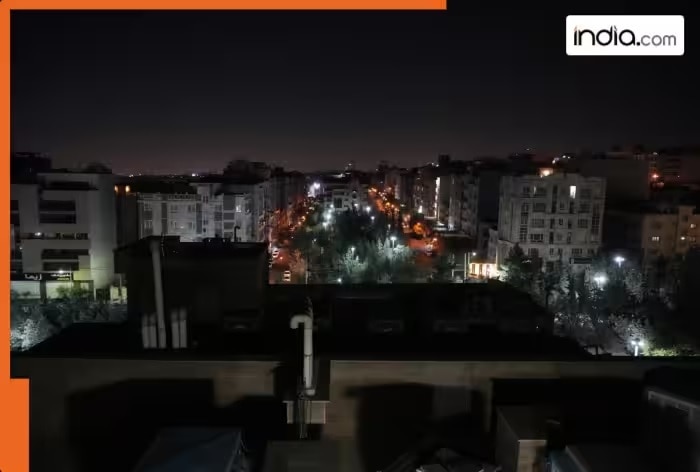There are people, including opposition members, who say this didn’t go far enough and wasn’t a strong enough response to Iran.

New Delhi: With just over a week until the election, Jerusalem had to think about how its reaction would affect it.
More than 100 Israeli Air Force (IAF) combat planes, including fighter jets and unmanned drones, flew about 1,600 kilometres through enemy territory, reportedly Syria and Iraq, early Saturday, October 26th. They attacked more than a dozen sensitive military targets in Iran in several waves and then safely returned home with at least the fighter jets.
In any way you look at it, that is a fantastic accomplishment.
There are people, including opposition members, who say this didn’t go far enough and wasn’t a strong enough response to Iran firing 200 ballistic missiles at Israel earlier this month. They say Israel should have used its right to respond by attacking Iran’s nuclear facilities, oil fields, or both.
And if Israel didn’t have to think about anything else, like Washington’s worries or the worries of its friends in the Persian Gulf (like U.A.E, Bahrain, Saudi Arabia), then maybe they are right.
We don’t live in that kind of world, though.
The US made it clear that they would not back an attack on Iran’s nuclear sites or its essential economic infrastructure. They had helped Israel stop Iran’s two previous attacks.
The countries in the Persian Gulf also said they were worried that if someone attacked Iran’s oil fields, Iran would attack their oil industry facilities.
Because of this, Jerusalem chose to attack a few of the Islamic Republic’s armed bases.
Foreign news sources say that the IAF destroyed air defence systems and radars in Syria, Iraq, and Iran itself to make way for the attacking planes.
In other words, Iran is entirely vulnerable. Some of those batteries were advanced Russian S-300s. Russia, which is involved in Ukraine, will be unable to supply them rapidly.
If the IAF has attacked once and cleared a passage, it can do so again. The Iranians will undoubtedly influence their choice on how and whether to retaliate.
Suppose the IAF was able to attack important Iranian military installations on Saturday (October 26), when Iran’s anti-aircraft defences were operational. How much more will it be able to accomplish now that those defences have been downgraded?
All of this means that just because Israel has not yet attacked Iran’s nuclear or oil sites does not indicate it will not do so in the future. Iran, and everyone else in the region, has now seen Israel’s tremendous capabilities.
Details about the strike
While the specifics of what Israel targeted remain unclear – a factory making crucial parts for ballistic missiles, ballistic missile launchers, and drone manufacturers – the targets appear to have been carefully chosen with a variety of goals in mind.
The primary goal was to reduce Iran’s military capabilities and limit its capacity to launch ballistic missiles towards Israel. While the government possesses a vast ballistic missile arsenal, it is not unlimited. If it cannot create a crucial component due to Saturday’s attack, it must consider restricted capacity when deciding how to respond.
The second goal was to send a message to Iran and everyone else in the region that when Israel says it will respond firmly to anyone who attacks, it means it. This means not only chopping off the tentacles of the Iranian octopus – Hamas and Hezbollah, which Israel is now doing – but also going after the octopus’s head, which is located in Tehran.
This is the first time Israel has accepted responsibility for attacks on Iran, taking the war straight to the enemy, and it is a critical line crossed.
Third, it delivered this blow and communicated this message while keeping Washington’s concerns in mind. With the presidential election little over a week away, Jerusalem had to consider how its response would affect the election and, more significantly, the winner’s policies.
Although one may expect former President Donald Trump to support an attack on Iran’s nuclear or oil infrastructure, Kamala Harris would oppose it. Jerusalem was clever not to bet on who would win and instead operated in a way that any candidate could live with.
(The author, Girish Linganna, is a Defense Analyst)

